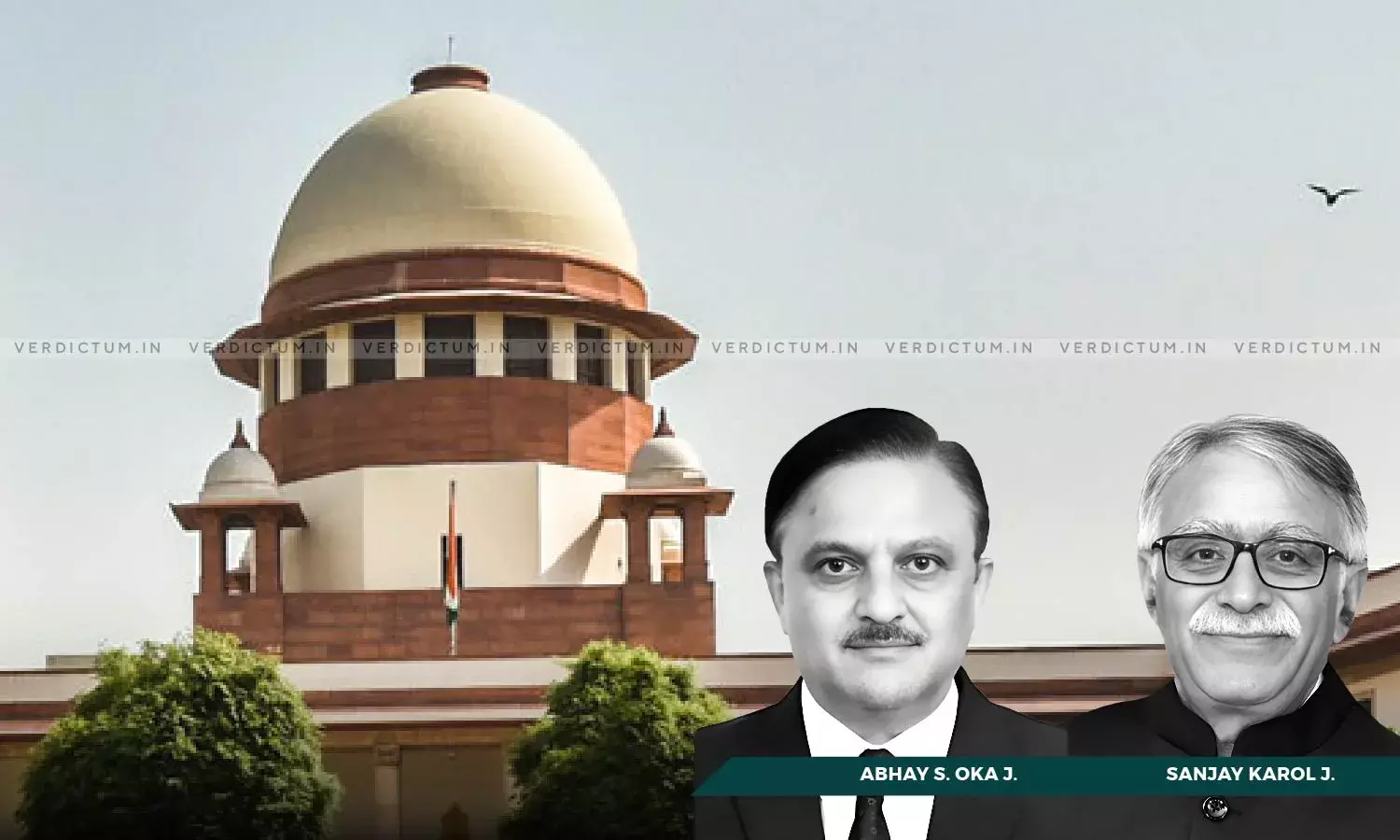Violator Indulging In Misbranding Liable To Pay Penalty Under Food Safety and Standards Act: SC

The Supreme Court held that a violator who has indulged in misbranding cannot be punished under the Prevention of Food Adulteration Act, 1954 (PFA), rather he will be liable to pay penalty under the Food Safety and Standards Act, 1954 (FSSA).
The Court held thus in a criminal appeal filed by the Director of Bharti Retail Limited, a company that was engaged in the business of operating retail stores under the name ‘Easy Day’ having outlets all over the country.
The two-Judge Bench comprising Justice Abhay S. Oka and Justice Sanjay Karol observed, “… in a case where after coming into force of Section 52 of the FSSA, if an act of misbranding is committed by anyone, which is an offence punishable under Section 16 of PFA and which attracts penalty under Section 52 of the FSSA, Section 52 of the FSSA will override the provisions of PFA. Therefore, in such a situation, in view of the overriding effect given to the provisions of the FSSA, the violator who indulges in misbranding cannot be punished under the PFA and he will be liable to pay penalty under the FSSA in accordance with Section 52 thereof.”
The Bench said that the effect of Section 89 is that, if there is an inconsistency between the provisions of the PFA and the FSSA, the provisions of the FSSA will have an overriding effect over the provisions of the PFA.
Senior Advocate Sajjan Poovayya appeared for the appellant while Advocate Pashupathi Nath Razdan appeared for the respondent.
In this case, various provisions of FSSA were brought into force on different dates and PFA was repealed with effect from August 5, 2011, as provided in sub-section (1) of Section 97 of the FSSA. The appellant’s company ‘Bharti’ was at the relevant time engaged in the business of operating retail stores and a Food Inspector appointed under the PFA visited a shop owned by Bharti in Indore and purchased certain biscuit packets from the shop. The visit was made in 2010 and on the next day, a panchnama was drawn, and the samples were sent to the State Food Laboratory, Bhopal, for analysis and testing. The report of the Public Analyst was received January 4, 2011 and on August 4, 2011, a notification was issued under sub section (1) of Section 97 of the FSSA notifying August 5, 2011 as the date on which the PFA shall stand repealed.
On August 11, 2011, a sanction was granted to the Food Inspector to prosecute the Directors of Bharti under the provisions of the PFA and hence, the Food Inspector filed a charge, and on the same day, cognizance of the offence was taken by the Judicial Magistrate. The Director filed a petition under Section 482 of the Code of Criminal Procedure, 1973 (CrPC) but the High Court dismissed the same. The High Court noted that the offence alleged against the Director was of misbranding which had taken place prior to the repeal of the PFA and hence, the Magistrate was empowered to take cognizance. Being aggrieved by the said decision of the High Court, the appeal was preferred.
The Supreme Court after analysing the facts of the case noted, “… the allegation was that the label on the food product of the appellant was not in accordance with the requirements of the PFA and the Rules framed thereunder. … The punishment under PFA and the penalty under the FSSA cannot be imposed on the violator for the same misbranding because it will amount to double jeopardy, which is prohibited under Article 20(2) of the Constitution of India. Thus, when the penal action can be taken under both statutes, the question is which will prevail.”
The Court further noted that when it comes to the consequences of misbranding, the same has been provided under both the enactments, and there is inconsistency in the enactments as regards the penal consequences of misbranding.
“As pointed out earlier, one provides for imposing only a penalty in terms of payment of money, and the other provides imprisonment for not less than six months. In view of the inconsistency, Section 89 of the FSSA will operate, and provisions of the FSSA will prevail over the provisions of the PFA to the extent to which the same are inconsistent”, said the Court.
The Court observed that the High Court committed an error by holding that there is no inconsistency between the penal provisions relating to misbranding under the PFA and FSSA. It added that the High Court ought to have quashed the proceedings of the prosecution of the appellant under Section 16 of the PFA.
“… we are dealing with a case where the alleged act of misbranding was committed when the relevant provisions of the FSSA, and in particular, Section 52 thereof, were already brought into force. Therefore, we are dealing with a situation where the act of misbranding will attract penal provisions both under the PFA and the FSSA. Thus, Section 89 of the FSSA comes into the picture which did not apply to the fact situation in the case of Hindustan Unilever Limited”, also said the Court.
Accordingly, the Apex Court allowed the appeal and quashed the proceedings pending before the Special Judicial Magistrate.
Cause Title- Manik Hiru Jhangiani v. State of M.P. (Neutral Citation: 2023 INSC 1078)
Appearance:
Appellant: Advocates Vijayendra Pratap Singh and Kamal Shankar, AOR Arti Singh, Advocates Atul N, Kshitiz Rao, Aakashdeep Singh Roda, and Pooja Singh.
Respondent: Advocates Nirmal Kumar Ambastha, Mirza Kayesh Begg, Maitreyee Jagat Joshi, Astik Gupta, Akanksha Tomar, and Argha Roy.


